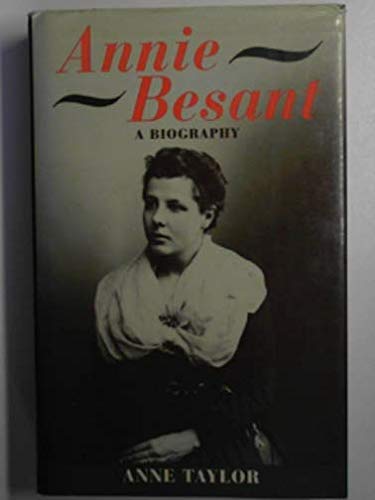In her long life, Annie Besant embraced political, religious, and social causes with equal conviction and sincerity, courting ridicule and controversy by actively promoting unpopular ideas. At 26 she fled the shelter of marriage to an Anglican clergyman and renounced her religious upbringing by joining the National Secular Society. Under the influence of its president, Charles Bradlaugh, she wrote and lectured for the cause of Freethought, and in 1876, achieved nationwide fame by defending birth control in a public court. She converted to socialism and through her friendship with Bernard Shaw joined the Fabian Society. In 1888 Besant played a leading role in the Bryant and May match girls' strike and became Secretary of the trade union they founded. But by 1891 she had fallen out of sympathy with socialists and turned instead to Theosophy and its eccentric prophet, Madame Blavatsky. Thereafter she divided her life between England and the Theosophical Society's headquarters in India. She joined the Indian National Congress and was interned in 1917 for her passionate advocacy of Home Rule. In this, the first full-length biography of Annie Besant in thirty years, Taylor draws on previously unpublished letters to show that Besant was in love, not with Shaw, but with journalist W. Stead who rejected her advances. The book reveals for the first time the full extent of the Government of India's alarm at Besant's commanding position in the crisis of 1917, and her bid for political and religious power in India.
- ISBN10 0192117963
- ISBN13 9780192117960
- Publish Date 2 April 1992
- Publish Status Unknown
- Out of Print 14 November 1996
- Publish Country GB
- Imprint Oxford University Press
- Format Hardcover
- Pages 396
- Language English
